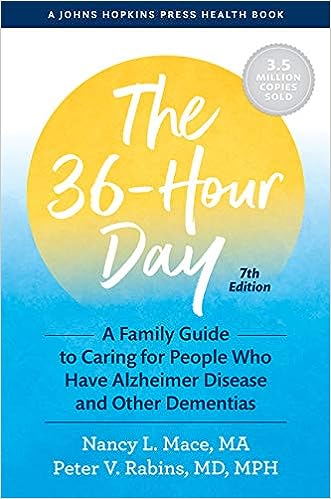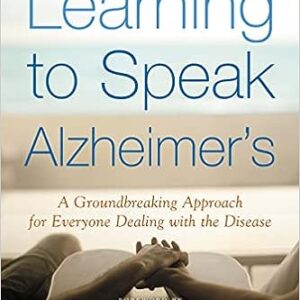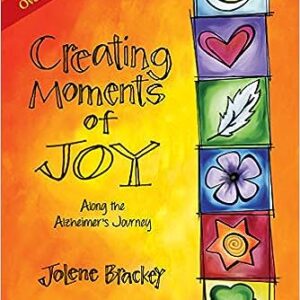Description
“The 36-Hour Day: A Family Guide to Caring for People Who Have Alzheimer’s Disease and Other Dementias” is a highly regarded book written by Nancy L. Mace and Peter V. Rabins. Originally published in 1981 and now in its 6th edition, this comprehensive guide offers valuable insights and practical advice for families and caregivers dealing with Alzheimer’s disease and other forms of dementia. Below are some of the key benefits and reasons why someone should consider purchasing this book:
- Expert Guidance: The book was authored by two leading experts in the field of Alzheimer’s and dementia care, making it a credible and reliable resource. Nancy L. Mace and Peter V. Rabins draw upon their extensive experience and knowledge to provide readers with evidence-based information.
- Clear and Accessible Language: The authors have a talent for presenting complex medical and caregiving information in a manner that is easy to understand for readers of various backgrounds. This makes the book accessible to both professional caregivers and family members who may be new to dementia care.
- In-Depth Understanding: “The 36-Hour Day” delves into the various aspects of Alzheimer’s and other dementias, including their causes, symptoms, and progression. Readers will gain a comprehensive understanding of the diseases and how they affect the individual and their family.
- Practical Tips for Daily Care: The book offers a wealth of practical advice on how to provide day-to-day care for individuals with dementia. It covers topics such as managing challenging behaviors, communication strategies, and creating a safe environment for the person with dementia.
- Emotional Support for Caregivers: Caring for someone with dementia can be emotionally demanding and overwhelming. “The 36-Hour Day” provides compassionate support and addresses the emotional aspects of caregiving, helping readers cope with the stress and challenges that come with the role.
- Decision-Making and Legal Issues: The book also touches on legal and financial matters, guiding families on how to make important decisions regarding care and estate planning. This can be particularly helpful when navigating complex issues related to the individual’s wellbeing and future care.
- Updated Information: With each new edition, the book is revised and updated to reflect the latest research and advancements in dementia care. This ensures that readers have access to the most current and relevant information available.
- Real-Life Stories: Throughout the book, the authors share real-life stories of families and caregivers, illustrating the various experiences people have when dealing with dementia. These stories provide readers with valuable insights and a sense of camaraderie.
- A Source of Empowerment: The book empowers families and caregivers by providing them with the knowledge and tools they need to face the challenges of dementia care with confidence and understanding.
In conclusion, “The 36-Hour Day: A Family Guide to Caring for People Who Have Alzheimer’s Disease and Other Dementias” is a highly beneficial resource for anyone involved in the care of individuals with dementia. Its expert guidance, practical tips, emotional support, and updated information make it an essential tool for understanding dementia and providing compassionate care to those affected by these conditions.


